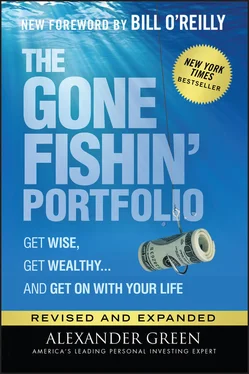Ultimately, the choices are this stark. Because it doesn't matter how high the returns are on your investments if you haven't saved enough. Or, worse, if you're trying to dig yourself out from under a mountain of debt.
If you're looking for a bit of inspiration, consider Billy and Akaisha Kaderli. Years ago, they were profiled on both Kiplinger.comand Bankrate.com. The Kaderlis live in an active adult community in Mesa, Arizona, even though they didn't meet the community's minimum age requirements when they first moved there. The couple ditched the rat race when they were 38 years old and have already spent more than three decades in retirement.
When they first retired, the Kaderlis sold their home and simply explored the world, traveling between Venezuela, Mexico, Thailand and the Caribbean island of Nevis.
Most folks would say they are living the dream, playing golf, traveling the world and socializing with friends whenever they want. How did they do it? Not by striking it rich, but by being frugal.
They are an example of what some call “extreme early retirement.” In their late 30s, Billy and Akaisha decided they were working too much, enjoying it too little and paying too much in taxes. Most of us would simply shrug and say, “That's life.”
However, the Kaderlis decided financial freedom was a lot more important than accumulating more stuff. According to Akaisha, “Every time I looked at a latte or a new pair of shoes, I decided I didn't need them. If you're clear about what you want, it becomes easier. You can either buy this or be days closer to your goal.”
Contrast this point of view with the materialistic mindset of many Americans, who often find themselves stuck on what psychologists call “the hedonic treadmill.” Instead of thinking about financial freedom, they're obsessed with thoughts of a bigger house, a fancier car, the best new restaurants and, of course, the latest ultra-high-definition TV.
I won't argue that these things aren't desirable. And, who knows, a bigger house may be a great investment (although not if you pull the equity out and spend it). But if you want to enjoy extreme early retirement, the key is to earn as much as you can, spend more frugally, and religiously save and invest the difference.
The Kaderlis have set up a website ( RetireEarlyLifestyle.com) to share their wisdom and experience. They list five sensible steps to early retirement:
1 Track spending. Take a close look at your spending on a daily basis. Once you start doing so, you'll be amazed at what you're spending your money on. It only takes a few minutes a day once you set up your system. After a month or two, you'll discover where you can reduce your expenses. Within a year, you'll be in control of future spending.
2 Save a lot. Once you have control of your spending, save that extra money for your future. If you're younger than 30 years old, a good target is to save 10% of your gross income—not your take-home pay, but the full amount of your salary before taxes and other deductions. After a short time, you won't miss the difference, but your savings will grow substantially. If you're over 30, increase your savings rate to 15% or more if possible. Take full advantage of employer-sponsored plans like 401(k)s, matching contributions and any other retirement benefits you receive—but don't include them in your savings percentages. That should be on top of what you're already saving on your own.
3 Invest wisely. Learn about investments, become your own expert, and keep things simple. You don't need to impress your friends with financial terms just so you can look knowledgeable …
4 Put peer pressure into perspective. Social pressure to spend can be subtle and pervasive, and it can divert you from your commitment to retire early. Marketing specialists tell you that if you only buy this new product, car, house or membership, your lifestyle will improve. It's reasonably easy to tune out that marketing message, but you have to handle your friends with a little more tact. Trying to match the spending of your peer group is a surefire way to derail financial goals. Decide now that you don't have to keep up with their consumption to fit into the crowd. The choice is yours—not theirs.
5 Keep your eye on the prize. Set realistic goals and keep to your plan. The amount you save, how you invest, and when you plan to retire may differ from your colleagues and others. No one will be as dedicated or determined as you are to reach your objectives. Put these goals somewhere where you'll see them often, to remind you to keep on course. Every time you get sidetracked by spending a little bit more, succumbing to peer pressure or choosing not to put extra money into your retirement funds, you're literally delaying your retirement date by weeks, months, or perhaps even years. Stay focused.
This is good, commonsense advice. And unlike the performance of the stock market, saving is something that is under your control. It's guaranteed to have a significant impact on the long-term value of your portfolio. And—trust me—it's a whole lot safer than attempting something heroic with your investments.
In short, a successful investment program begins with disciplined saving. Regular saving remains the safest, easiest and most effective way to boost your portfolio. True, it means making hard choices. But, ultimately, you are the person responsible for your financial well-being.
Rare is the individual who stumbles on financial freedom accidentally. Unless you've got a rich relative with a bad heart—and a soft spot for you—whether you end up a slave to money or its master will depend mostly on you and the choices you make.
1 There can be no successful investment program without saving. And significant saving requires fiscal discipline.
2 A high percentage of American workers are not adequately saving, which impacts their likelihood of a sound retirement.
3 Participating in a 401(k) or IRA program is a great route to savings. But you should also save at least 10% of your after-tax income.
4 Most high-net-worth individuals did not strike it rich, but, rather, had the discipline to live beneath their incomes and save the difference between their net income and expenses.
5 Finding that perfect balance between saving and spending is key to living happily now and in retirement.
6 Saving generally means prioritizing financial freedom over high living.
CHAPTER 3 Change Your Mindset, Change Your Life
The exceptional person has a vision—of great performances, of a great career, of a great something—and doesn't care what others may say or think.
Source: Bob Rotella, Bob Cullen, “How Champions Think: In Sports and in Life”, Simon and Schuster, 2016. © 2016, Simon and Schuster
During my 35-year career as an investment analyst, I've sought to discover how ordinary people in this country become wealthy, distill this knowledge to its essence and share it with others.
I'm now convinced that to reach your most important investment goals it's essential to develop what I call a “prosperity mindset.” This is an investor's most critical asset.
Your mindset is the filter through which you see the world. It determines how you spend your time, what decisions you make and how you invest your money.
What is a prosperity mindset for investors? In my view, it rests on this foundation:
1 You understand the habits and choices that allowed tens of millions of ordinary Americans to become wealthy.
2 You recognize the major trends—historical, political, cultural, technological and financial—that are making things better for most people in most places in most ways.
3 Based on these trends, you maintain a rational optimism about the future, especially when the nation or the world experiences short-term setbacks, as we always do from time to time.
Читать дальше












